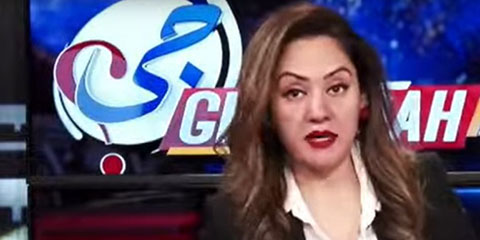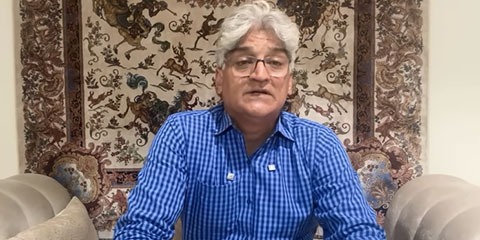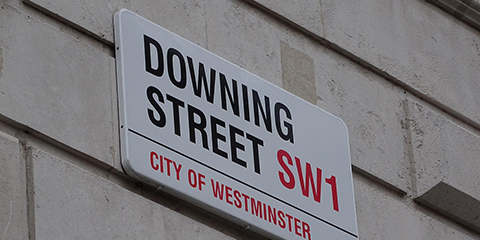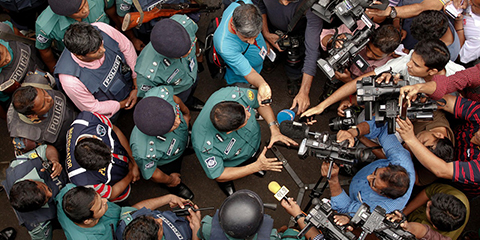Rizwan Razi’s YouTube ban: What it means for press freedom and Pakistani journalists online
JournalismPakistan.com | Published 3 months ago | JP Special Report
Join our WhatsApp channel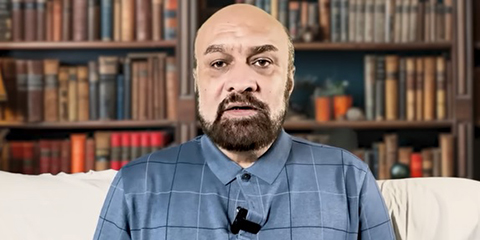
ISLAMABAD — The Senate’s Standing Committee on Rules of Procedure and Privileges has directed the Pakistan Telecommunication Authority (PTA) to block the YouTube channel of veteran journalist and vlogger Rizwan Razi—popularly known as Razi Dada—after he made derogatory remarks against the Sindhi community in a recent vlog.
The decision, made during a committee meeting chaired by Senator Syed Waqar Mehdi, has sparked a heated debate over the balance between curbing hate speech and protecting press freedom in Pakistan.
The Vlog That Sparked Controversy
Rizwan Razi, who runs the YouTube channel Razi Nama with over 289,000 subscribers, posted a vlog in which he used offensive language about Sindhis, calling them the “offspring of monkeys.” The remarks went viral on X (formerly Twitter), drawing sharp criticism from political circles, journalists, and civil society.
Lawmakers in the Senate meeting argued that Razi’s comments were not only derogatory but also harmful to federalism and inter-provincial harmony. The committee concluded that such content could inflame ethnic tensions and therefore recommended blocking his channel.
Termination by PTV and Apology
Before this latest Senate decision, Pakistan Television (PTV) had already terminated Razi’s services over the offensive vlog. Facing widespread backlash, Razi issued an apology acknowledging that his remarks were wrong. However, the committee decided that the apology was insufficient, citing the seriousness of the language used.
What the Ban Means for Press Freedom
The ban raises larger questions: Is blocking a journalist’s YouTube channel the right response—even after an apology? While few defend the offensive language, critics argue that banning platforms is a dangerous precedent in a country where press freedom has already been shrinking.
Pakistan has seen repeated crackdowns on television anchors, columnists, and reporters. With traditional media increasingly restricted, many journalists have shifted to YouTube and other digital platforms as their primary source of income and audience engagement.
By blocking Razi’s channel, authorities risk creating a chilling effect—not just on him but on countless other YouTubers who rely on digital platforms for survival. For many, YouTube is not only a space for expression but also their livelihood after being sidelined from print and broadcast media.
The Bigger Picture for Pakistani YouTubers
Pakistan’s digital media space has become a parallel press industry. Dozens of journalists forced out of mainstream television channels—often due to political pressure—have turned to YouTube to continue reporting and analysis. Channels like Razi’s, regardless of controversy, represent part of this new independent media ecosystem.
Blocking a channel for offensive remarks may address immediate outrage, but it also highlights the state’s growing role in policing digital spaces. Critics warn that such actions could escalate into broader censorship, where political criticism may also be curtailed under the guise of combating hate speech.
Where Does Pakistan Go from Here?
The Senate committee’s decision reflects a fundamental dilemma: how to draw the line between hate speech and free speech. On one hand, no society can allow derogatory, ethnic, or religious slurs to pass unchecked. On the other, blanket bans risk silencing dissenting voices and undermining democracy.
As Pakistan navigates this challenge, the case of Razi Dada serves as a test for the future of journalism and digital media. Will this be remembered as a justified clampdown on hate speech—or another blow to press freedom?








